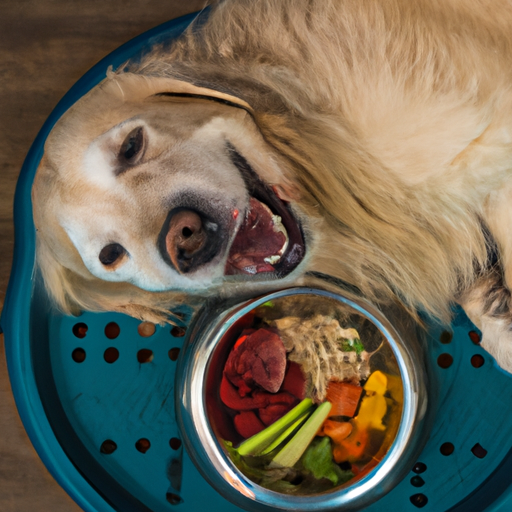As a caregiver, it’s your responsibility to ensure that your furry friend is receiving the best possible care, especially in their golden years. This guide will help you navigate the sometimes confusing world of senior dog nutrition.
H2: Understanding the Nutritional Needs of a Senior Dog
Just like humans, dogs’ dietary needs change as they age. Their metabolism slows down, they become less active and their digestive systems can become more sensitive.
The key nutritional needs for senior dogs are:
- Protein: Older dogs may need more protein to help maintain muscle mass and support overall health.
- Fiber: A diet rich in fiber can help to manage weight and support gut health.
- Fat: While it’s important to monitor fat intake to avoid weight gain, healthy fats are essential for brain function and skin health.
- Vitamins and Minerals: These are crucial for maintaining a healthy immune system and preventing disease.
Remember, every dog is unique and their nutritional needs will vary based on their breed, weight, health conditions, and lifestyle.
H2: Choosing the Right Food for Your Senior Dog
With so many brands and types of dog food on the market, choosing the right one for your senior dog can feel overwhelming. Here’s a step-by-step guide to help you navigate this process:
- Consult with your vet: Your vet can provide personalized advice based on your dog’s unique needs.
- Choose a food specifically designed for senior dogs: These foods are formulated to meet the nutritional needs of older dogs.
- Consider any special dietary needs: If your dog has a health condition such as diabetes or kidney disease, they may need a specialized diet.
- Monitor their weight: If your dog is overweight, you may need to choose a diet that is low in calories.
Here’s a comparison of some popular senior dog food brands:
| Brand | Protein | Fat | Fiber | Price |
|---|---|---|---|---|
| A | High | Low | High | $$$ |
| B | Medium | Low | Med | $$ |
| C | High | Med | Low | $ |
H2: Supplements for Senior Dogs
In addition to a balanced diet, your vet may recommend certain supplements to support your senior dog’s health. Here are some commonly recommended ones:
- Glucosamine and Chondroitin: These supplements can support joint health and mobility.
- Fish Oil: This is a great source of omega-3 fatty acids, which can support brain function and skin health.
- Probiotics: These can support digestive health and boost the immune system.
- Antioxidants: These can help to combat the effects of aging and support overall health.
Remember to consult with your vet before starting any new supplements.
H2: Feeding Schedule and Portion Sizes for Senior Dogs
Your senior dog may not be as active as they used to be, which means they may not need as many calories. It’s important to monitor their weight and adjust their portion sizes accordingly.
It’s also a good idea to feed your dog smaller, more frequent meals. This can help to maintain stable blood sugar levels and prevent overeating.
H2: Hydration for Senior Dogs
Just like humans, dogs need to stay hydrated for their bodies to function properly. This is especially important for older dogs, as they may be more prone to dehydration.
Make sure your dog always has access to fresh, clean water. If they’re not drinking enough, try adding some water to their food or offering them a dog-friendly broth.
FAQ
Q: Can I still give my senior dog treats?
A: Yes, but remember that treats should make up no more than 10% of your dog’s daily calorie intake. Choose low-calorie, healthy treats and avoid those high in sugar or fat.
Q: What if my dog doesn’t like their new food?
A: Transitioning to a new diet can be challenging. Try mixing a small amount of the new food with their old food and gradually increase the amount over a week.
Q: How often should I feed my senior dog?
A: This can vary based on your dog’s needs, but generally, it’s a good idea to feed them smaller, more frequent meals. This can help to maintain stable blood sugar levels and prevent overeating.
Q: What supplements should I give my senior dog?
A: This can depend on your dog’s unique needs. Some commonly recommended supplements include glucosamine and chondroitin for joint health, fish oil for brain and skin health, probiotics for gut health, and antioxidants to support overall health. Always consult with your vet before starting any new supplements.
Remember, taking care of a senior dog requires patience, love, and understanding. With the right diet and care, you can help your old friend live out their golden years in comfort and health.



